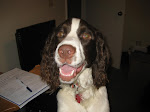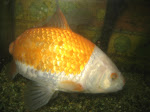The article on job interview mistakes was a good introduction to what can go wrong in an interview. However, this list does not include everything that you should consider when going on an interview. I believe it brings out a lot of good points that must be evaluated before and during the actual interview. The article touches on preparing for the interview, but I believe that should be a huge focus. With proper preparation, you eliminate a few different mistakes mentioned by the article right off the bat. First of all, if you know a good deal of background information about the company and job itself, you will not need to ask any "stupid" questions. Personally, I do not believe there are such things as stupid questions, but there can be silly questions that could and should go unasked. Also, if someone does good research before an interview, you should not be worried about giving unreliable answers. You will establish good ethos and employers can usually tell who has prepared for interviews and who has not. I found some other information in this article useful. Such descriptions include the importance of the follow up and the "little things" such as mood, mannerisms, and body language.
I myself have had several job interviews for internships and such. I have experienced phone interviews and face-to-face interviews. They can both be stressful, but also rewarding. The phone interviews I have had were mostly very comfortable. I remember being told further about the job description and what they were looking for exactly. Also, we discussed the resume I had submitted to the given company. The face-to-face interview was a little bit more stressful, but I tried to make it as stressless as possible. I did research about the company and how I could fit in with their goals. During the interview, it was very little question and answer. I sat down with the Director of Golf and the General Manager of the facility and we more or less talked for 20 or so minutes. Through talking, they were able to see what I was all about and get a sense of how reliable my resume was. We did discuss some items on my resume that would potentially relate the position at their facility. Also, some direct questions were asked (tough ones I might add). Some questions included "tell us about a stressful situation and how you reacted." and "why do you want this job? why would you be a good fit with our company?" The best thing you can do in these direct question situations is to stay calm, and think about your answer before you blurt it out. Staying calm has been the most helpful idea that has helped me through the interviewing process. P.S. I got the job :)
Subscribe to:
Post Comments (Atom)



No comments:
Post a Comment